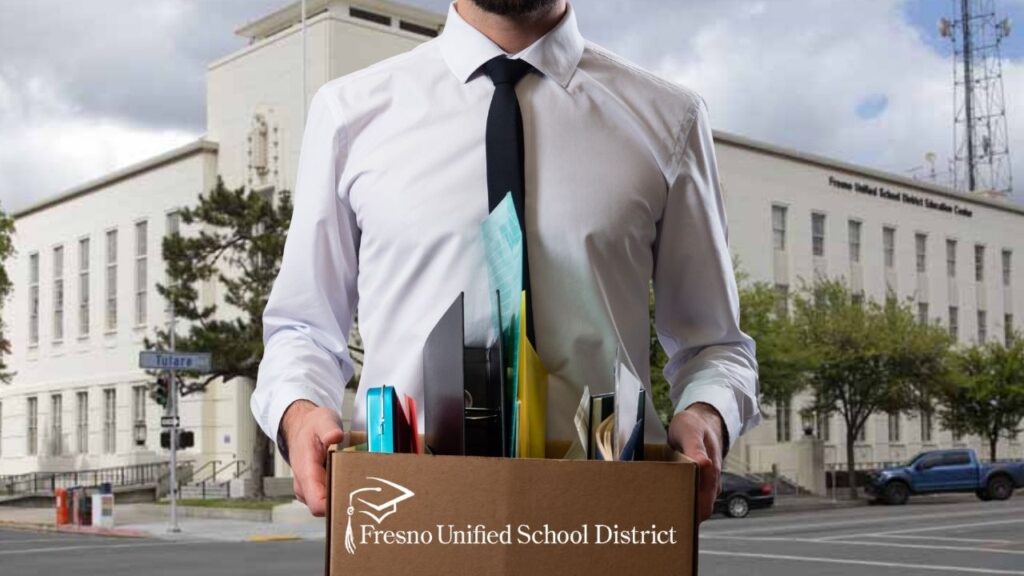Share
The Fresno City Council debated changes to its cannabis business ordinance at its Thursday meeting.
First approved in December 2018, the main revisions would give the city council the authority to grant or deny licenses, and set standards for social equity and responsibility.
Listen to this article:
A vote on the changes is scheduled for Nov. 7.
Councilman Miguel Arias — co-author of the revisions along with Esmeralda Soria — presented an updated timeline showing an estimated approval of applications by June 2020.
But, even that is unlikely. Later on, Arias informed his colleagues that an environmental impact report expected by Oct. 31 likely won’t be finished until next spring.
Debate Over Control

“We are offering people convicted of crimes first dibs on opening a dispensary. That seems insane to me.” — Councilman Garry Bredefeld
Councilman Luis Chavez wondered why the council would decide.
Arias answered that because the council will ultimately decide conditional-use permits, it makes sense to decide who receives the licenses as well.
“I want to be very careful about even the perception that councilmembers are directing or prohibiting businesses going into a specific location,” Chavez said.
Councilmen Garry Bredefeld and Paul Caprioglio brought up similar concerns.
“I don’t want any part of selecting who opens these dispensaries. It is fraught with all kinds of problems. It is fraught with all kinds of unsavory behavior and I think it ought to be left up to the city manager,” Bredefeld said. “When you leave it up to councilmembers, you will have nothing but problems.”
Caprioglio called councilmembers making the call “a bit onerous.”
Assistant City Manager Jane Sumpter said they are awaiting a recommendation from a city-hired consultant before supporting the plan.
Social Equity Component
Arias and Soria pushed for reserving at least one retail license for every seven granted, and one for every eight commercial licenses, for applicants meeting social equity goals. Among the criteria: ownership and employees that come from low economic backgrounds or have been convicted for past marijuana crimes.
Some of the social equity provisions mirrored recent state laws signed by Gov. Gavin Newsom, such as fee waivers, and the right for employees to unionize.
Councilman Nelson Esparza said the regulations were a “long time coming.” The component also drew praise from cannabis business advocates Cesar Casamayor and JePahl White.
Bredefeld criticized the social equity component.
“We are offering people convicted of crimes first dibs on opening a dispensary. That seems insane to me,” Bredefeld said.
Overregulation?
George Boyadjian, the owner of 420 College, warned about overregulating the businesses.
“I don’t think government has any room in a private business, telling a private business who to hire and how to operate and what to do, because this is a private enterprise,” Boyadjian said.
Caprioglio served on the cannabis subcommittee along with Soria and Arias, but he did not sponsor the changes.
Taking about his private business background, Caprioglio shared concerns about overregulating.
“When you overregulate, then you create issues,” Caprioglio said.
He noted that the language in the current ordinance places social equity components at the discretion of the applicant. What they chose would be part of the city manager’s evaluation.
Caprigolio wrote the original ordinance with since-departed councilmembers Oliver Baines and Clint Olivier. The council passed it in December 2018. He defended the hard work put into the 60 pages of code.
“We’re a little bit early on this ordinance,” Caprioglio said, referring to the delayed EIR.
“We, at the end of the day, are the policy-making body,” Soria responded. “We know we have challenges in our community that need to be addressed.”
RELATED TOPICS:
Categories



















